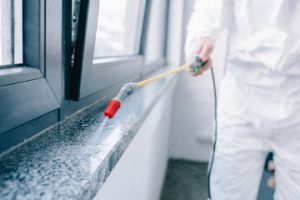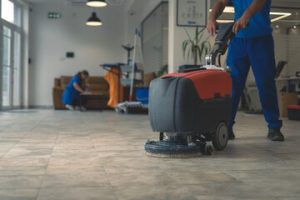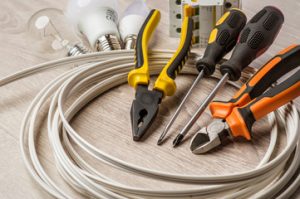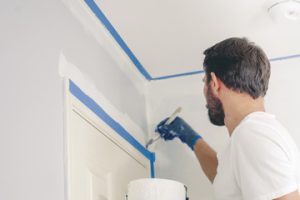Whether you opt to take on pest control yourself or hire a professional, you need to understand the steps involved. Do-it-yourselfers should clear clutter away from surfaces that will be sprayed, consider the safety of pets and children, and read and follow all instructions carefully.

Pest Control Trophy Club TX is often more about management than eradication. Here are some of the most common pest control strategies:
Pest infestations can be extremely damaging and can cause structural damage, health problems, and loss of property value. While there are a variety of different pest control techniques, prevention is the best approach to protect your property and ensure continued comfort in your home or business. There are several preventive measures that can be taken to reduce the risk of a pest infestation, from eliminating food sources to preventing pests from accessing your property.
Keep Kitchens Clean: Food scraps, leftovers, and crumbs left on surfaces in the kitchen are an open invitation to pests and rodents. In addition to keeping kitchens clean, it is also important to store food properly in containers and to seal any potential entry points into the kitchen.
Eliminate Standing Water: Pests, especially mosquitoes, breed in areas where there is standing water. Regularly inspect and repair any leaks or flooding, and remove any puddles from around your property to eliminate the breeding grounds for these pests.
Keep Yards and Gardens Clear: Rodents and other pests love to hide in cluttered and overgrown yards and gardens, where they can easily gain access into buildings. It is essential to regularly weed, trim, and prune plants and shrubs, and to clean out sheds and other structures on your property.
Seal Entry Points
The smallest cracks and crevices can be entry points for pests, including rats, cockroaches, and flies. Regularly conduct a thorough inspection of the exterior of your property to identify and close any possible entry points, paying special attention to utility entry points, which can serve as highways for pests to travel between units in multi-family dwellings.
Mechanical Pest Control: This technique utilizes barriers and traps to physically keep or catch pests away from a certain area, without the use of toxic chemicals. Barriers can be physical structures like fences and screens, or materials like netting and mesh. Traps can be as simple as mouse traps or sticky fly papers, or as sophisticated as pheromone traps that take advantage of pests’ natural behaviors. Routinely checking and maintaining these barriers, or using chemical treatments when necessary, is an important part of preventive pest management.
Eliminating Infestations
Many pests enter homes or offices seeking food, shelter, or water. They often gain entry through a variety of tiny openings, such as cracks in walls or door frames, crevices around vents and utility pipes, and eaves. These entry points can be difficult to identify, but a careful inspection of the property can help homeowners and business owners find and close these openings.
Other factors that can attract pests include rotting foods, pet feces, trash, and debris. A lack of ventilation can lead to moisture build-up in rooms, which also can attract pests. Many types of flies are attracted to sweet drinks and rotting fruit, and gnats can be found in stagnant pools of water.
A clean, well-maintained environment is less appealing to most pests. Regular vacuuming, wiping down surfaces, and storing food in airtight containers can help make an area less attractive to pests. Trash cans should be sealed and emptied frequently, and wood piles should be monitored to ensure that they don’t become homes for termites or beetles.
Having regular pest control services can also provide peace of mind, as professional inspectors can catch problems before they have a chance to spread. In addition, routine inspections can help prevent damage to furniture, woodwork, and other personal items that may depreciate the value of your home or business.
Pests can carry disease-causing pathogens and allergens that can affect your health. Rodents can contaminate food, and even bird pests like pigeons and seagulls can spread diseases by droppings or transmit viruses through their feathers and dander. By eliminating pest infestations, you can protect your health and the safety of your loved ones.
Integrated Pest Management is a long-term approach to pest control that incorporates prevention and monitoring as well as treatment of existing infestations with cultural, mechanical, biological, and chemical methods. By using this method, the need for toxic chemicals can be minimized, promoting a healthier living and working environment. Ultimately, IPM can save time and money by preventing costly repairs and replacements that can occur when pests invade your space. It can also help preserve the value of your home or business and keep it safe from future invasions.
Monitoring Infestations
Infestations must be monitored and reported on a regular basis to determine the extent of a pest problem and if an infestation is stable, growing or decreasing. In addition, monitoring helps to identify environmental conditions conducive to pests and can assist in predicting whether or when an infestation may occur.
A good monitoring program consists of both active and passive inspections. Active inspections involve someone physically searching likely areas for signs of pest activity. This can include walking the building perimeter or examining window boxes, planting beds and planters. It can also mean inspecting the roof, attic and basement for rodent and insect nests, droppings and other evidence of pest activity. It is recommended that you wear dust mask, knee pads and protective clothing for these activities.
Passive monitoring techniques can include observation of fruit rot, leaf damage and other physical evidence of pests or their damaging effects on plants or trees. They can also involve the use of indicators, such as sticky traps or indicator plants that show pest infestation and/or disease. Insect traps and sweep nets are useful for catching certain insects and can be used at various times of the year, depending on the pest.
Observing and recording insect numbers can help with determining the appropriate level of pesticide control for an infestation. This information can also be useful in assessing a treatment program, including the timing of spraying or baiting and the effectiveness of treatments. It can be helpful to put this data in a graph form so that the trends can be observed and compared with previous infestations.
Monitoring can also identify underlying maintenance or operation issues that may be contributing to a pest situation. This can include caulking around windows, restricting food to certain areas of the building, and ensuring that eavestroughs, drains and downspouts are clear and that the ground slopes away from buildings. It can also include removing mammal, bird and insect nests from the property and ensuring that compost, garbage cans, dumpsters, trash compactors and other containers are rodent proof. These and other preventative measures are key elements of an integrated pest management program.
Preventing Recurring Infestations
The most successful pest management strategies are those that prevent infestations from occurring in the first place. This requires a combination of site hygiene and maintenance, ongoing monitoring, and regular treatments. Preventing pests from becoming a problem saves money, inconvenience, and time. It also reduces the risk of a crisis such as the 2009 salmonella outbreak caused by contaminated peanut products shipped by the Peanut Corporation of America. Pests are known to carry many diseases that affect people and animals including a number of infectious illnesses, such as salmonella and listeria. If a facility is producing food or medical products, it must ensure that its pest control measures are adequate to protect public health and safety.
Pests are attracted to sites where there is a ready supply of food, water, shelter, or breeding opportunities. They are also attracted to areas where moisture can build up and provide favorable conditions for their development and growth. Infestations can be prevented by keeping facilities clean, making sure doors and windows have tight seals, and fixing leaky faucets or pipes. Planting herbs like mint or lavender near entryways and in kitchens acts as a natural deterrent against pests.
A recurring pest control service is often the best way to prevent recurrent infestations, especially for a commercial property or building where ongoing pest detection is necessary. A recurrent pest control program is usually scheduled at intervals that fit the needs of the property, allowing for early intervention before infestations can become a major problem.
In addition, a recurrent program also allows for the monitoring of pests by placing sticky traps around the facility. These traps should be numbered, dated, and regularly inspected. When a trap is triggered, it is important to identify the type of pest, and how they got there, so that corrective actions can be taken.
A recurring pest control service is particularly helpful for facilities with constant foot traffic, such as hotels and restaurants. The services are typically performed outside of normal business hours to minimize interruptions and disruption. Regular inspections allow for early detection and treatment, reducing the cost of repairs to attics or walls.


